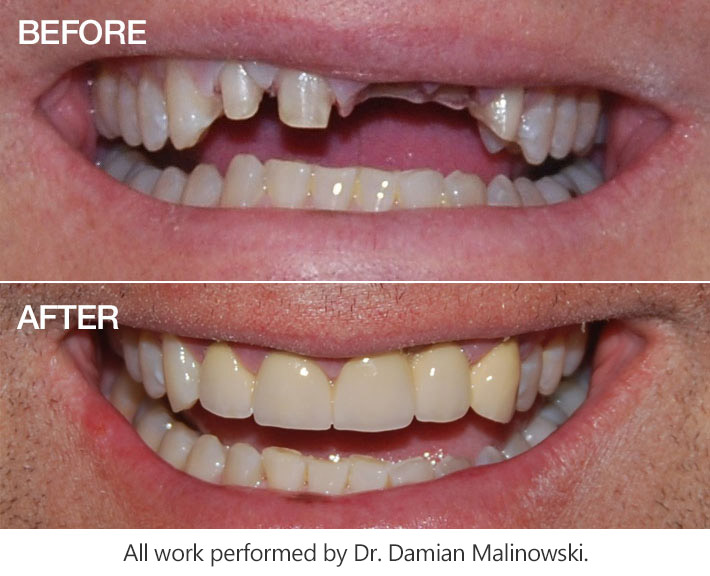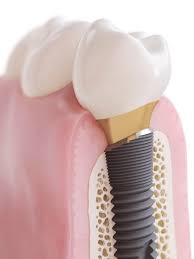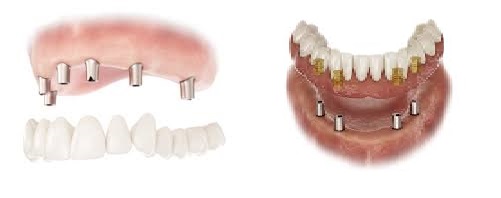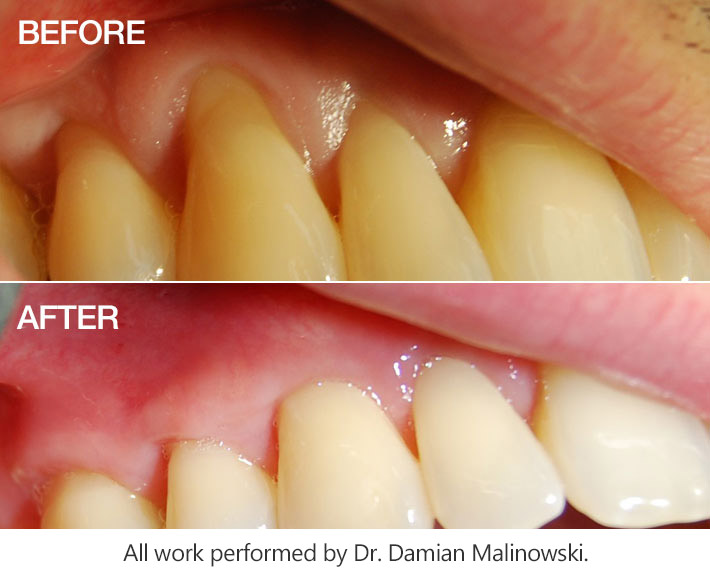Our Services

Beautiful smiles can be created or enhanced in many different ways. It is so exciting to be able to offer a variety of natural esthetic options to our patients that were not available a few years ago. The science and art behind the cosmetic products is so impressive today that it becomes almost impossible to tell apart a real tooth from a porcelain one.
Listed below are just some of the services Dr. Malinowski offers that make up the general term Cosmetic Dentistry
Dental Cosmetics:
- Porcelain veneers and crowns
- Bleaching
- Braces
- Gum grafting to cover recession
- White filling materials etc…

It is important to mention that not everyone needs to have their wisdom teeth extracted. In fact there are many people who keep their wisdom teeth for their entire lives without having any issues.
As a general rule, if your wisdom teeth are creating discomfort, pain or infection they need to be assessed for extraction. If your wisdom teeth are not creating any discomfort but are impacted, they also need to be assessed. Typically the younger a person is, the easier the extractions are with less complications, and a speedier recovery.
Dr. Malinowski routinely extracts wisdom teeth under IV sedation. This is a great choice for people as they are much more comfortable during the procedure. In fact many patients comment on how fast and easy the appointment was. The sedation creates a lasting positive experience with a procedure that many do not look forward to.

- Deep cavity
- Cracked tooth broken/tooth
- Bad bite/clenching grinding
- Loose tooth
- Recession
- Recent filling
- Trauma
- Braces
- Resorption (internal/external)
Nerves can undergo a certain amount of irritation and recover (reversible). During this recovery process it is normal to feel mild to moderate temperature sensitivity for a short period of time (a few seconds). However, sometimes the nerves do not recover from the irritant, and as a result a toothache develops.
This toothache is different from a reversible toothache in that the pain can persist for minutes or hours. It can be brought on spontaneously (can wake someone during sleep) or with irritation. Once a tooth has progressed to this stage a root canal treatment is necessary; otherwise, the only other option is to extract the tooth.
The root canal procedure involves Dr. Malinowski drilling a small hole into the chewing surface of the tooth into the nerve space and removing the nerve. Shaping and sterilizing the canal(s) from within is performed simultaneously. Once this is complete a permanent filling is placed into the root(s), and a filling is placed to seal the opening into the tooth.
Following a root canal procedure it is not abnormal to feel discomfort to chewing or pressure on the tooth in question. This can last from a few days to a few weeks. Dr. Malinowski will give you a pain medication regimen to follow to minimize/prevent post-operative sensitivity. Typically, an anti-inflammatory such as ibuprofen or aspirin is an excellent choice as long as your medical doctor approves its use for you.
Back teeth (premolars/molars) are much more prone to fracture after root canal treatment. Research clearly shows placing crowns on root canaled back teeth drastically improves the long-term prognosis of those teeth. After these teeth are crowned, you can rest assured knowing that root canal treatments have a greater than 90% success rate at 10 years following treatment.

At Langford dental we are well prepared to manage higher anxiety children with some type of light sedative. Even though the vast majority of appointments are managed with ‘freezing’ only, sedation may benefit some. Every patient is assessed individually and a decision is made with the parent/guardian on how to proceed.
In the end, we want to create a positive, memorable visit for the little ones. Dr. Malinowski and his staff have young children of their own which makes them very experienced and aware of the needs and fears that can exist with young people. We hope you entrust us with addressing your children’s dental needs as we do not take this responsibility lightly.

Our staff are trained in different modalities of sedation and Dr. Malinowski has received extensive training in intravenous sedation. He is licensed by the British Columbia College of Dental Surgeons to provide this service for his patients.
All our staff are sensitive to the varying degrees of anxiety people may have. We cater to your individual needs and strive to exceed all your expectations. Our goal…with time…is to lessen the amount of anxiety you feel in a dental setting, and thereby continue regular healthy dental maintenance.
Nitrous (laughing gas)
Very safe for children and adults. This type of sedative takes the edge off. Dr. Malinowski will put a small hood on your nose through which you will breathe. You will start to feel calm and relaxed within seconds; when we are finished, it will also wear off in seconds. Nitrous can put a smile on your face, and best of all you can leave the appointment and drive to work.
Oral Sedation (light)
This is a great choice for people who are mildly anxious or just want the appointment to go by quickly. Come an hour early to our office and we give you a tiny pill. For the next hour you sit with a warm blanket and magazine and wait as the sedative starts to work. With this type of sedation you will need to be driven home by a responsible adult who has your best interest at heart.
IV Sedation (moderate)
For those who want more sedation this is a much better choice. The drug is administered intravenously until a moderate sedation level is achieved. This level is reached within minutes, and can be maintained throughout the appointment by continually “topping up” the drug. Again, the advantage of this method is the reliability of reaching the right level of sedation. With this type of sedation you will also need to be driven home by a responsible adult who has your best interest at heart.
At Langford Dental your safety and peace of mind is paramount. For all types of sedation a very thorough medical history is taken at the consult appointment. Every sedated patient has his/her vitals monitored with hospital grade equipment. Day after follow-up calls are always made to ensure you are feeling well and to answer any questions you may have.

We then proceed to take photographs and x-rays of all your teeth. In some cases impressions are also taken to have a ‘working set’ of your teeth (in stone) with us when you leave. Once all information is collected, Dr. Malinowski will start his examination.
He will check your muscles and lymph nodes of the head and neck. Your jaw joints (TMJ) will be assessed; he will examine your bite and how it relates to any signs or symptoms of worn, loose or cracking teeth. He inspects for infections in the gums or bone and cavities in teeth. An oral cancer check is always performed, not only at the new patient exam but also at every check-up and cleaning.
At this point Dr. Malinowski has a good picture of your dental health. If he sees some issues he will point them out and an appointment can be scheduled to correct the problem. A hygiene appointment should also be scheduled where the hygienist will not only clean your teeth, but she will also finish gathering more information about the gum and bone health around your teeth. We will strive to accommodate your busy schedule and work with you to help you regain or maintain a healthy beautiful smile!

Why replace a missing tooth?
When a tooth is extracted many changes occur in that area; some of these changes happen instantly, some take months or even years. Depending on what is done to prevent this and depending on when it is done, some of these changes will affect future treatment in that area. Some changes that result from not replacing a lost tooth are:
- Bone shrinkage in that area
- Gum shrinkage in that area
- Movement of adjacent teeth into the empty space resulting in gaps between other teeth and a changed bite
- Movement of opposing teeth into that area (upper tooth moves down, or vice versa)
- Loss of chewing power
- Smile showing tooth missing
- Speech changes
Luckily most people are suitable candidates to receive dental implants. Depending on the situation, procedures like grafting may be necessary with the placement of implants. A comprehensive examination and consultation is needed to properly assess and discuss the treatment options available specific to you.
Single/Multi-tooth Implants
Single tooth implants or implants replacing more than one tooth are a great option for people who:
- do not want to cut down adjacent natural teeth for a bridge
- do not have available teeth to utilize for a bridge
- do not have strong enough adjacent teeth to be utilized for a bridge
- want to have the most natural tooth replacement option
Implant Dentures
Implant supported dentures are a great option for people who:
- want more chewing power
- cannot tolerate wearing thick dentures
- don’t want to have an appliance that moves around in their mouth or drops when they speak
- are getting chronic sores from their loose dentures
- do not have enough bone to support a denture

Our jaws shrink over time if there are no teeth or implants in the bone. As a result there is less and less bone to support the dentures; hence, more movement of the dentures when chewing or speaking. It is the movement of the dentures that creates sores, swelling of gums and overall aching of the jaws. For some people these dentures can fall or drop when smiling or yawning, creating a potentially embarrassing moment.
Depending on the situation and the type of prosthetic desired, dentures/bridges can be anchored into implants in a variety of ways. The result is an incredible increase in stability, large gain in chewing power, and a decrease in the bulk and thickness of the denture/prosthetic.
If you are tired of your ill-fitting dentures or don’t want to consider conventional dentures as an option, please let us know. Dr. Malinowski would be more than happy to go over your options during an examination.

Our hygienists are by nature very thorough and gentle. They have the capability to maximize your comfort during cleaning appointments by administering various types of anesthesia (freezing). They utilize conventional hand instruments as well ultrasonic instruments (cavitrons). Depending on what your individual need is, they will customize their technique to suit you.

- planning and placing dental implants
- planning for bone grafting
- treating or retreating root canals
- planning orthodontics
- planning for complicated dental extractions
- visualizing TMJ anatomy
- visualizing oral pathologies


- Genetics
- Poor oral hygiene
- Excessive forces in brushing
- Trauma
Teeth with recession have many characteristics:
- Can be more sensitive to temperature, touch and sweets
- Look longer and darker
- More prone to decay, erosion and abrasive wear from food and brushing
- Difficult to brush thoroughly
The most important consideration in treating gum recession is determining the elements responsible for it. Once these factors have been identified, the recession can be treated surgically in confidence knowing the recession should not recur.
As a general rule, the younger a person is with recession the more important it is to treat. Conversely, there are many people who have gingival recession who do not necessarily need gum grafting procedures. These people are monitored closely over time.
Many different types of gum grafting procedures are available depending on the situation. As with all dental surgical procedures, a comprehensive evaluation and discussion prior to the procedure would be necessary.
If you have questions about gingival recession it is important that you have Dr. Malinowski discuss this topic with you.
We welcome new patients and emergencies! Contact us today.
